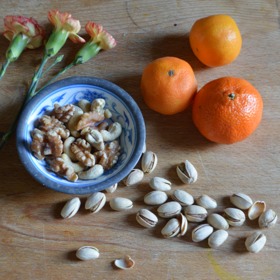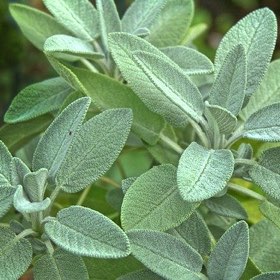Nutritional tips to help with the symptoms of Menopause
Give yourself a break from all of the unmanageable symptoms of menopause, by supporting yourself with ultimate nutritional health.
Top tips from Nutritionist Fabiana Matos.
Email Fabiana to find out more
Menopause, the permanent ceasing of menstruation and reproductive function, is a biological stage of a woman’s life. When the ovaries begin to stop functioning, there’s a decline in egg maturation and subsequently a depletion of sex hormones production, oestrogen and progesterone.
In the UK the average age of menopause is 51, but it depends on a series of factors, including lifestyle. The perimenopause, when the hormones start fluctuating, can last up to 7 years before the actual menopause. Most women start experiencing symptoms during the perimenopause, at around 45 years of age. In a few exceptional cases some will become menopausal in their 30s or even younger. This is known as premature menopause or premature ovarian insufficiency.
 Unfortunately, in Western societies menopause is often perceived as the total loss of functional abilities and the end of femininity, beyond the actual ability to create life and the loss of period. However, although a massive milestone in every woman’s life, menopause is not a disease and it doesn’t mean the end of you!
Unfortunately, in Western societies menopause is often perceived as the total loss of functional abilities and the end of femininity, beyond the actual ability to create life and the loss of period. However, although a massive milestone in every woman’s life, menopause is not a disease and it doesn’t mean the end of you!
The majority of females still suffer under the stigma surrounding the topic. In addition to the unpleasant symptoms many of us experience, we also have to deal with the emotional and psychological side effects on our daily lives, which affect work, sex, relationships and our general well-being.
At work, which is often already stressful, menopause makes it even harder to manage forgetfulness and lack of concentration, some of the most common symptoms. Lack of sleep and low mood are one of the main reasons women take time off work.
Even more sensitive is the subject of sex. Vaginal dryness and atrophy, low libido and loss of bladder control are still a big taboo, as well as being a practical problem.
But it is not all lost! Realistically, we have to adapt to the changes and there are a lot of interventions that can help easing your journey.
Symptoms
It should be noted that not every woman experiences the same symptoms. We are all unique and our personal lifestyles play a big role in how our body responds to the changes. Whilst some women experience the most horrific night sweats and hot flushes, others sail through menopause without even noticing it. However, the most prevalent symptoms include:
● Night sweats, hot flushes
● Fatigue
● Weight gain
● Low mood, depression and anxiety
● Digestive discomfort: constipation, bloating, reflux
● Memory and cognitive problems
● Loss of skin elasticity, excessive wrinkling and dryness
● Vaginal dryness and increase in infections such as thrush
● Low libido
What can I do?
 First of all don’t underestimate the power of nutritional intervention and adopt healthy eating habits; simple changes can make a massive difference;
First of all don’t underestimate the power of nutritional intervention and adopt healthy eating habits; simple changes can make a massive difference;
● Two pieces of fruit and five vegetables (increase antioxidants)
● Consume whole grains and fibre to support healthy hormone metabolism
● Consume high quality proteins – more vegetarian than animal and eating organic whenever possible to reduce sources of endocrine disruptors
● Low GL dietary pattern to reduce cardiovascular risk
● Keep caffeine at a minimum e.g. less than 250mg a day
● Drink at least 2 litres of water a day
● Avoid foods which seem to aggravate hot flushes e.g. excessively spicy food and alcohol
● Eat phytoestrogen rich foods. These include non-genetically modified soy products such as soy milk, tofu, legumes, tempeh and beans. Increase lignan intake via flaxseeds.
Consider supplementing your diet with quality multivitamins and minerals, and vitamin D. And ensure to pack your diet full of these essential nutrients:
 Vitamin C – broccoli, cantaloupe, cauliflower, kale, kiwi, orange, papaya, red, green or yellow pepper, sweet potato, strawberries, parsley and tomatoes.
Vitamin C – broccoli, cantaloupe, cauliflower, kale, kiwi, orange, papaya, red, green or yellow pepper, sweet potato, strawberries, parsley and tomatoes.
It’s high antioxidant status has been shown to reduce the risk of breast cancer and cardiovascular disease after menopause, especially dietary carotenoids.
Vitamin E – nuts, seeds, green leafy vegetables, avocados, butternut squash and trout.
May be helpful in reduction of hot flushes.
B vitamins – whole grains, poultry, fish, eggs, legumes, seeds and nuts and dark leafy vegetables.
Support the adrenal glands and stress response.
Omega 3 fatty acids – “SMASH” fish (sardines, mackerel, anchovies, salmon and herring), chia seeds, flax seeds and walnuts.
May be helpful with vaginal dryness.
Magnesium – green leafy vegetables, bananas, figs, avocados, nuts and seeds, legumes, brassicas and seafood.
Important for the bones and it reduces anxiety.
Calcium – dairy, leafy greens, tofu, soya beans, nuts and sardines.
Essential for healthy bones
The risk of osteoporosis increases after menopause due to the lack of oestrogen. It’s extremely important to monitor bone density carefully, and levels of calcium, magnesium, boron, Vitamin K and vitamin D.
 Exercise is also very important to build bone density.
Exercise is also very important to build bone density.
Be aware that smoking is associated with an increased risk of osteoporosis.
Lifestyle
As mentioned above, the role of exercise is unquestionable in reducing the risk of osteoporosis, but is shown to also alleviate other symptoms like low mood, anxiety, constipation, and weight gain, particularly yoga. Furthermore, yoga and pilates exercises help to strengthen pelvic floor muscles that can improve your sexual life and bladder problems significantly!
Watch out for hormone disruptors contained in plastic, beauty and personal care products, and household products, pesticides and non organic meat.
Ensure your thyroid is functioning at an optimum level.
A functional test, which can be requested through your GP, is the best way to check your thyroid function as some of the symptoms can be similar to the ones experienced in the menopause, such as low mood, anxiety, depression and weight gain. To boost the health of your thyroid, and in addition to the nutrients listed above, you should also include iodine (salmon, beef liver, eggs, seaweed), zinc (lean beef, poultry, lamb, wholegrains, seeds, sea vegetables), selenium ( Brazil nuts, meat, poultry, wholegrains) and iron (lean meat – most bio available – beans, pulses and dark leafy greens).
Simple tips to alleviate hot flushes:
● As obvious as it sounds, dress appropriately.
● Try light, loose fitting clothes made from natural fibres such as cotton and linen.
● If suffering from night sweats, it’s advisable to sleep on a towel or folded sheet. So you can then pick it up and wash it without having to take the entire bed sheet off each morning.
● Use natural and untreated fibres that breathe better.
Sex
Inevitably, your sexual life will be affected, but this is not a death sentence!!!
 In addition to paying special attention to your emotional and psychological health,first of all, talk, talk, talk! And talk with your partner. An open dialogue eases the pressure on both of you. Remember, even if they are female and going through what you are experiencing, they are not in your head, feelings are unique to each individual, they might not understand yours if you don’t express them.
In addition to paying special attention to your emotional and psychological health,first of all, talk, talk, talk! And talk with your partner. An open dialogue eases the pressure on both of you. Remember, even if they are female and going through what you are experiencing, they are not in your head, feelings are unique to each individual, they might not understand yours if you don’t express them.
If intercourse is a problem, explore other options with your partner. Don’t be shy, make it fun, explore different lubricants.
Stress
The body has to rely on the adrenal glands to produce the sex hormones, once the ovaries stop producing the majority of them. Support adrenal function by reducing stress levels to make for a smoother transition.
 Yoga and meditation, or simply going for a walk, proves to be a great way to reduce stress. Avoid stimulants such as caffeine and alcohol, and remember the B vitamins and magnesium.
Yoga and meditation, or simply going for a walk, proves to be a great way to reduce stress. Avoid stimulants such as caffeine and alcohol, and remember the B vitamins and magnesium.
Also, note that ovary-manufactured testosterone contributes to female sexual desire; after menopause, approximately 35% of females experience reduced sexual desire due to the cessation of testosterone production by the ovaries. But the other 65% still manufacture enough testosterone in their adrenal glands to sustain their sexual desire! Look after your adrenals!
Hormonal Replacement Therapy
However controversial, HRT seems to be the viable option for some women who experience severe symptoms. But not without some side effects and risks: the following health issues pose an extremely high risk;
● Hormone dependent cancer (e.g. endometrial cancer, current or past breast cancer)
● Active or recent arterial thromboembolic disease (e.g. angina or myocardial infarction)
● Venous thromboembolic disease, pulmonary embolism, or current pregnancy
● Severe active liver disease
● Undiagnosed breast mass
● Un-investigated abnormal vaginal bleeding
Each woman responds differently to HRT, ideally a three months trial should be done before deciding if that is the best option. Most importantly, educate yourself to make an informed decision.
Prevalent risks and benefits
Benefits
Symptom control, Quality of life and Osteoporatic fracture prevention
Risks
Blood clots, Breast cancer, Stroke and Gallbladder disease.
Side effects
Bleeding, Fluid retention, Weight gain, PMS and Nausea.
Herbs
The majority of studies indicate that extract of black cohosh (Cimicufuga racemosa L.) improves menopause-related symptoms. Safety reviews suggest that black cohosh is well tolerated and that adverse events are rare when it is used appropriately.
Be aware of herb interactions with other drugs. Consult a professional practitioner before taking any herbal remedies.
Remember to build your resilience with a healthy diet and lifestyle; exercise at least 3 times a week, enjoy ‘me time’, understand your symptoms and don’t blame yourself for how you are feeling. Look after your mental and emotional health and look for help if you need to.
And finally, here is a simple home remedy for hot flushes
Chop about 6 fresh sage leaves and soak overnight in fresh lemon juice. In the morning, strain the lemon juice, dilute with water to taste and drink. This should be drunk before food as it also aids digestion.
If you have any concerns or are interested in a personalised treatment plan, take advantage of a complimentary 20 minutes health assessment call with me.
Email Fabiana to find out moreFabiana Matos DipCNM mBANT mCHNC www.nutritionalhealingkitchen.com
Nutritional Therapist and Health Coach www.instagram.com/nutritional_healing_kitchen www.facebook.com/nutritionalhealingkitchen
References
British Menopause Society, NHS Menopause, Women’s Health Concern – The Menopause, The North American Menopause Society, The Textbook of Functional Medicine (2010) pg622